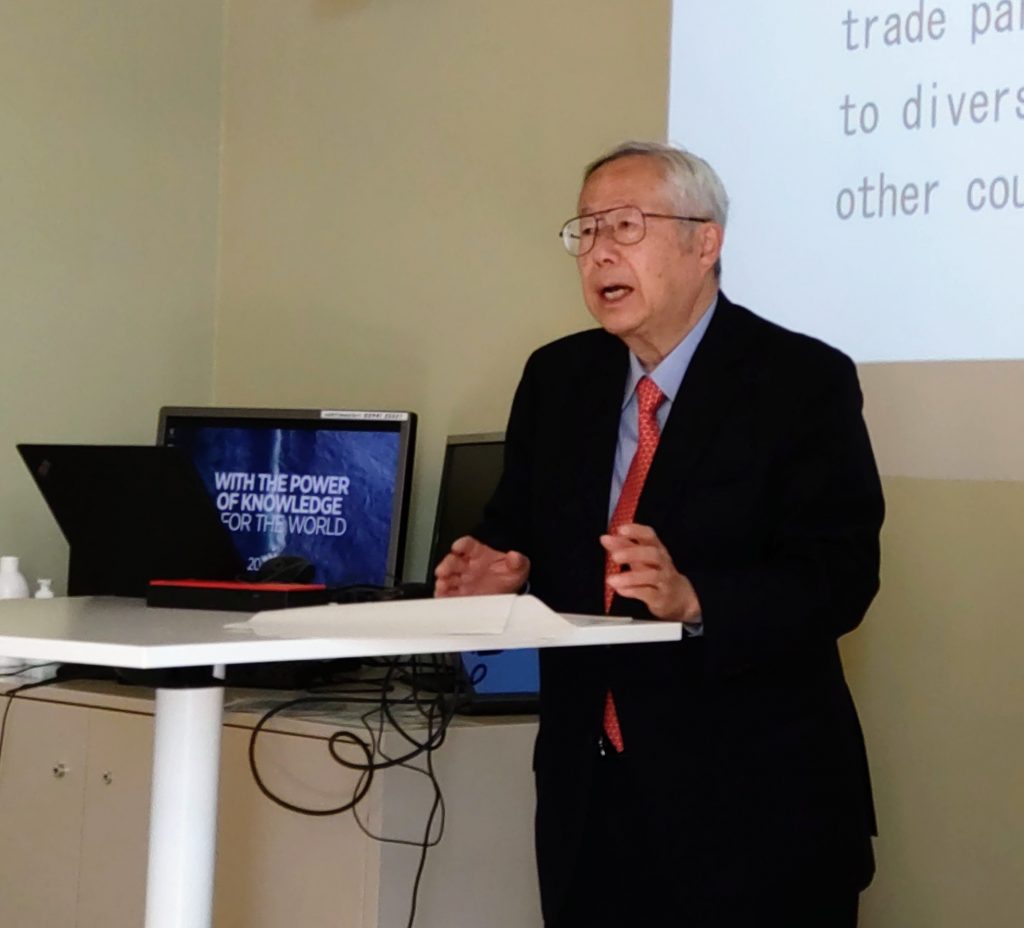“Balance of power is the name of the game in human history, whether we like it or not.”
On May 19th, Shikata Tatsuo of the Kajima Institute of International Peace gave a lecture on the implications of the Ukraine War for the Indo-Pacific. Shikata’s focus was on the Sino-American flashpoint Taiwan and the role of Japan in case of escalation over the self-governing democratic island.
With 40 years of regional business experience under his belt, Shikata started off by underscoring the return of country risk analysis for major companies exposed to supply lines uncertainty due to the rising geopolitical temperature in the region.
He then pointed to the CCP’s shift from economic legitimacy to one of Han nationalism. China’s economy has peaked; GDP growth last year was around 3%––far off its target of 5%.
Besides the structural drivers of stagnation, among which an aging and shrinking workforce, and a (hidden) debt and real estate bubble, Xi’s agency looms large. Killing the “golden goose” Deng Xiaoping forged, Xi’s Zero-COVID policy and diplomatic corps of “Wolf Warriors” changed the perception of Chinese intentions vis-à-vis economic policy: ideology can now trump economic needs.
The agency of Xi is also apparent in China’s foreign and defense policy, with Xi demanding of the PLA to be ready for a Taiwan contingency by 2027. In addition to the gray zone tactics employed, China and Russia’s navy have circled the Japanese islands since both countries declared a “no limits” partnership.
 Together with Russia’s bombing of Ukraine, this has alarmed and awakened the Japanese public to a new era. Polling numbers show a move away from the long-cherished sheltering under the US security umbrella in favor of a more proactive security posture of Japan.
Together with Russia’s bombing of Ukraine, this has alarmed and awakened the Japanese public to a new era. Polling numbers show a move away from the long-cherished sheltering under the US security umbrella in favor of a more proactive security posture of Japan.
Shikata mentioned a couple of concrete changes Japan’s government is likely to implement:
– The acquiring of advanced counter-strike capabilities able to reach Russia, North Korea, and China, missiles with a range of 1000 km;
– Japan will seek “integrated deterrence” with the US;
– Japan’s public is not ready to change Article 9 of the pacifist constitution, so an added clause to legitimize the Self Defence Forces could be an option;
– While Japan is not likely to come to Taiwan’s aid offensively, indirectly, it would support US operations launched from its bases in Japan;
– In case of emergency, the Japanese Prime Minister may deviate from Japan’s declared Three Non-nuclear Principles and may introduce American nuclear weapons to Japanese soil one way or another.
Shikata closed the talk by advancing a caveat to US rhetoric, calling for Japan to help the US move away from its unhelpful slogan of “democracies versus autocracies.”
The above summary reflects Shikata’s personal view only. It does not represent any institution’s view.
This public event is organized by the Helsinki team of “The EU in the Volatile Indo-Pacific Region” funded by the EU (Grant Agreement ID 1010790069)


